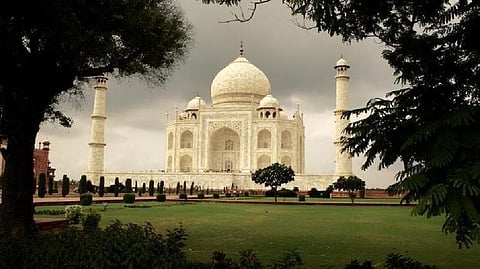

NEW DELHI: The Supreme Court on Monday declined to entertain a plea, which sought the removal of alleged wrong historical facts in connection with the Taj Mahal's construction from the history books.
A bench of Justices M.R. Shah and C.T. Ravikumar told the petitioner that the PILs are not meant for a fishing enquiry. "We are not here to reopen history. Let history continue. The writ petition is dismissed as withdrawn," said the bench, asking the petitioner to make a representation before the Archaeological Survey of India (ASI)
The apex court made these observations while hearing a plea filed by Surjit Singh Yadav. The petitioner had moved the Supreme Court seeking direction to the Centre to remove the alleged wrong historical facts, from history books and textbooks, in connection with the construction of the Taj Mahal.
The petitioner also sought directions to the ASI to conduct an inquiry to determine the age of the 17th century monument, which is a UNESCO World Heritage Site.
Clarifying that it has not expressed anything on the merits, the top court said, "The petitioner is granted liberty to make representation to the ASI."
The plea contended that it is extremely strange why all the court chroniclers of Shah Jahan have not mentioned the name of the architect of this magnificent mausoleum.
The plea argued that this quite clearly indicates that the mansion of Raja Man Singh was not demolished but only modified and renovated to create the current look of the Taj Mahal.
On October 21, the Supreme Court junked a plea seeking a direction for a "fact-finding inquiry" into Taj Mahal's history and also a direction for the "opening of 22 rooms" on the monument's premises.
The petitioner had moved the apex court after the Allahabad High Court in May this year, declined to entertain a plea by one Rajneesh Singh. The high court noted that the petitioner failed to establish which of his legal or constitutional rights were being infringed.
The petitioner had argued before the high court that many Hindu groups have claimed that Taj Mahal is an old Shiva Temple which was known as Tejo Mahalaya. He contended that this theory was supported by many historians as well.
The high court pulled up the petitioner for filing a plea in a casual manner and said it cannot pass an order under Article 226 of the Constitution in the matter.
Visit news.dtnext.in to explore our interactive epaper!
Download the DT Next app for more exciting features!
Click here for iOS
Click here for Android